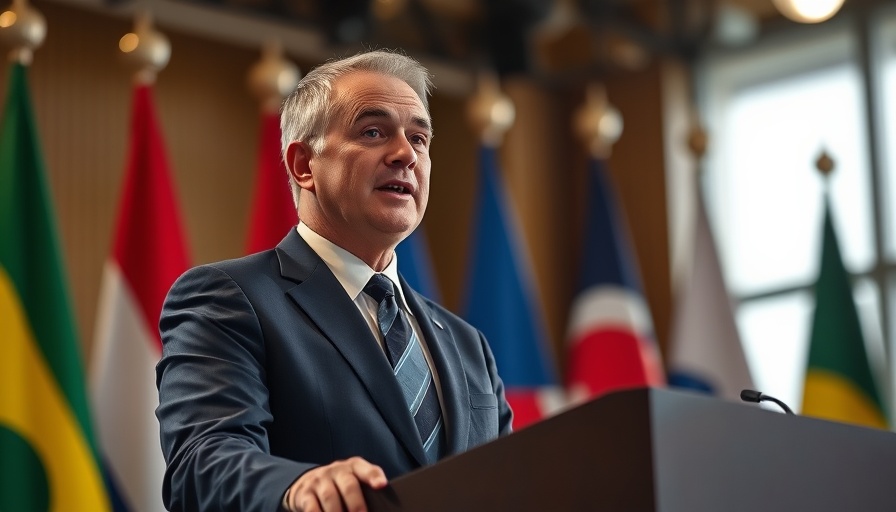
The Pressure Behind the Decision to Allow Aid into Gaza
In recent developments regarding the humanitarian crisis in Gaza, Israeli Prime Minister Benjamin Netanyahu made headlines with his announcement about allowing limited aid into the beleaguered territory. This move came after intense pressure from international allies who expressed concerns about the rising humanitarian needs and images of suffering and hunger emerging from Gaza. Netanyahu’s acknowledgment of this pressure sheds light on the complex interplay between military action and humanitarianism in the ongoing conflict.
Understanding the Humanitarian Crisis
The situation in Gaza is dire, with the recent blockade exacerbating an already critical humanitarian crisis. Experts warn that the blockade, which has restricted essential goods such as food, fuel, and medical supplies, poses a serious risk of famine within a population of around two million people. As reports of hunger become increasingly visible, global leaders have urged Israel to permit at least some level of aid to prevent further deterioration of the already vulnerable conditions.
Historical Context of Gaza's Blockade
This recent shift by Israel to permit 'basic' aid into Gaza is set against a backdrop of a long-standing blockade, which has been in place since Israel's conflict with Hamas started in 2007. Over the years, this blockade has resulted in numerous humanitarian crises, prompting international outcry from organizations such as the United Nations and various human rights groups.
Alarming reports outline that access to basic necessities has frequently been undermined by military operations and ongoing conflict. This situation calls for a deeper understanding of the historical roots of the Gaza blockade and the geopolitical factors influencing Israeli policies.
International Response and Aid Coordination
As countries debate their positions on providing support to Israel amidst its military operations, the international community has demonstrated a divided stance on aid to Gaza. While EU countries have called for immediate humanitarian access, others remain focused on military support to Israel, illustrating the often conflicting priorities in international governance.
Organizations like the International Red Cross have urged cooperation to ensure that any aid reaching Gaza is delivered effectively. Coordination among these groups becomes paramount to address immediate humanitarian needs while balancing geopolitical tensions.
The Broader Implications of Aid Restrictions
Netanyahu's recent announcement raises questions about the future of aid access in Gaza amid ongoing military operations. The decision to allow aid may have crucial implications not only for the people facing extreme hardships in Gaza but also for the broader peace negotiations between Israel and Palestinian factions.
As military actions ensue, Israel’s signaling to the international community regarding its willingness to allow aid reflects a strategy that seeks to mitigate backlash and improve its global standing while continuing its military objectives. The risk, however, is that piecemeal commitments to aid do not sufficiently address the systemic issues that underpin the crisis.
Public Perception and the Role of Media
Public sentiment on the ground in both Israel and Palestine is influenced heavily by media portrayals. Images of suffering individuals in Gaza evoke sympathy, prompting calls for humanitarian intervention while feeding into narratives about military aggression. These visuals warrant a responsible media approach that emphasizes nuanced storytelling, rather than sensationalism, making sure that the humanitarian aspect is not lost amid the geopolitical discourse.
The Path Forward: Can Aid Bring Positive Change?
While the decision to permit basic aid into Gaza offers a glimmer of hope, it remains to be seen whether this will lead to significant change. Observers emphasize the need for strategic engagement that balances humanitarian assistance with a focus on longer-term peace-building efforts. This includes fostering dialogue between conflicting parties, addressing underlying grievances, and creating pathways for sustainable coexistence.
Ultimately, the ongoing humanitarian crisis in Gaza serves as a stark reminder of the consequences of armed conflict, urging all stakeholders to prioritize the human element in their decisions. As we move forward, the international community must be vigilant in advocating for both immediate humanitarian relief and a lasting peace that respects the rights and dignity of all people involved.
 Add Row
Add Row  Add
Add 




Write A Comment